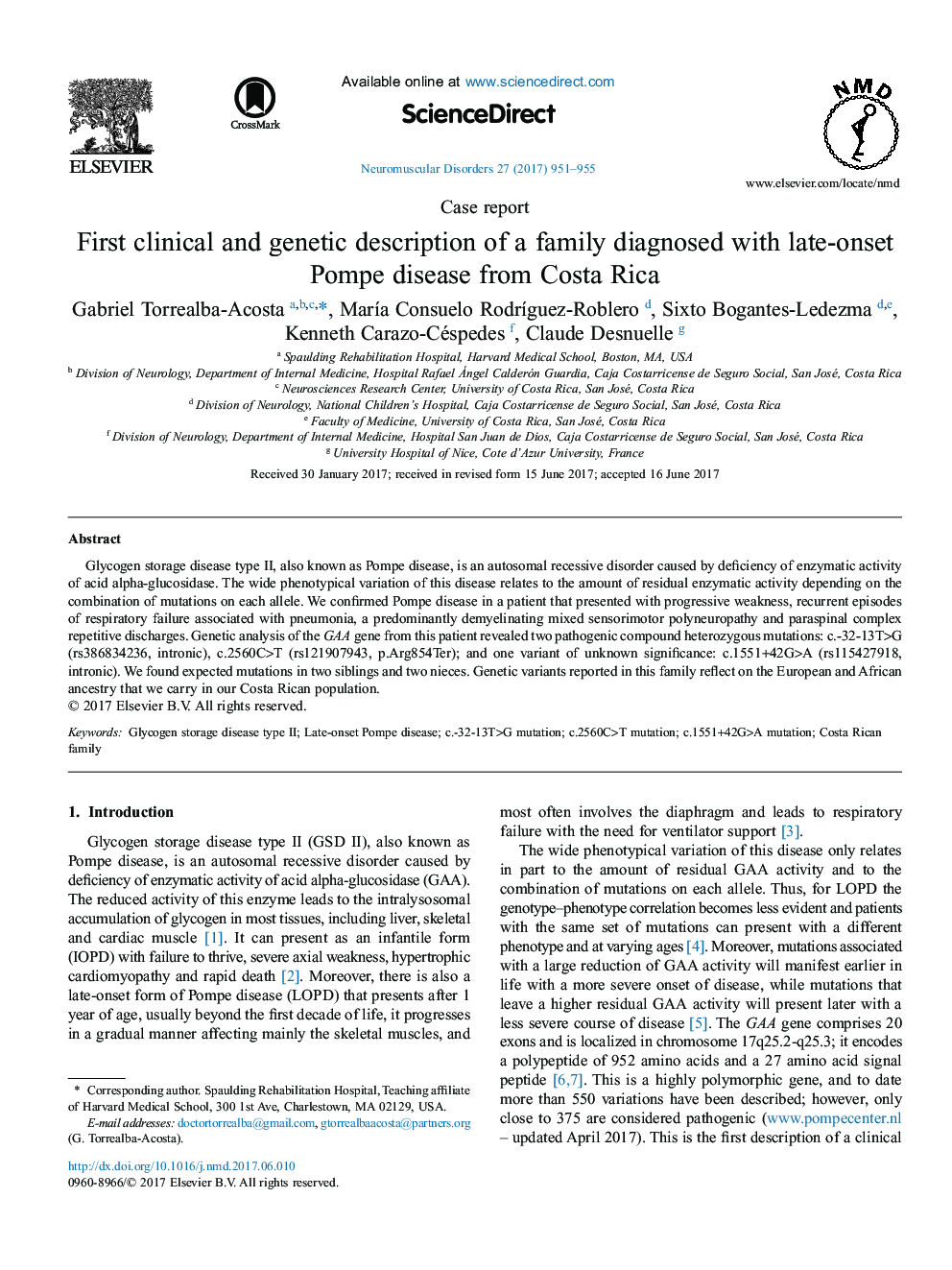| Article ID | Journal | Published Year | Pages | File Type |
|---|---|---|---|---|
| 5632250 | Neuromuscular Disorders | 2017 | 5 Pages |
â¢This is the first clinical and genetic description of Pompe disease in a family from Costa Rica.â¢Recurrent respiratory failure and paraspinal complex repetitive discharges suggest LOPD diagnosis.â¢GAA mutations found in our patients reflect on a European and African ancestry.
Glycogen storage disease type II, also known as Pompe disease, is an autosomal recessive disorder caused by deficiency of enzymatic activity of acid alpha-glucosidase. The wide phenotypical variation of this disease relates to the amount of residual enzymatic activity depending on the combination of mutations on each allele. We confirmed Pompe disease in a patient that presented with progressive weakness, recurrent episodes of respiratory failure associated with pneumonia, a predominantly demyelinating mixed sensorimotor polyneuropathy and paraspinal complex repetitive discharges. Genetic analysis of the GAA gene from this patient revealed two pathogenic compound heterozygous mutations: c.-32-13T>G (rs386834236, intronic), c.2560C>T (rs121907943, p.Arg854Ter); and one variant of unknown significance: c.1551+42G>A (rs115427918, intronic). We found expected mutations in two siblings and two nieces. Genetic variants reported in this family reflect on the European and African ancestry that we carry in our Costa Rican population.
